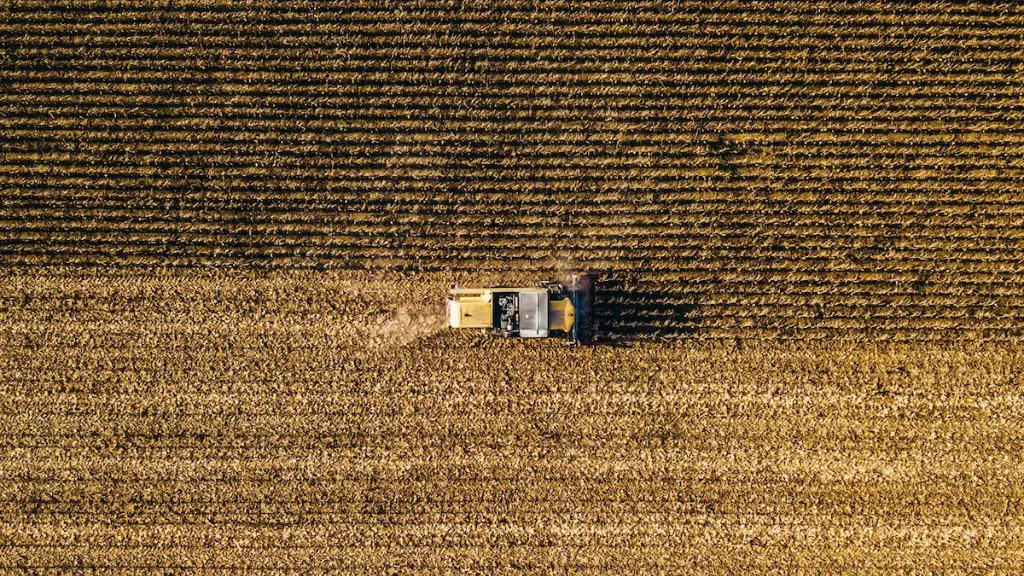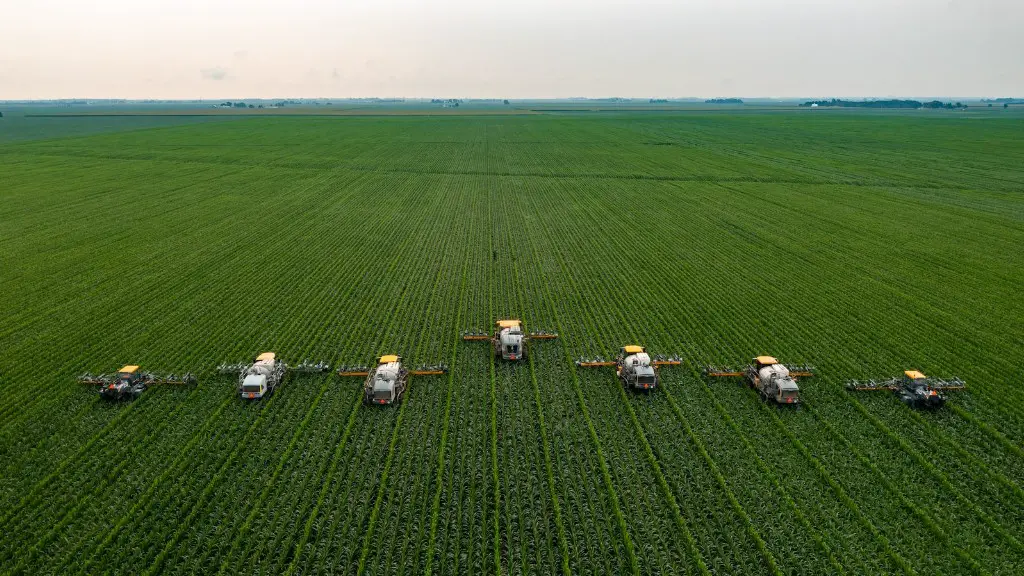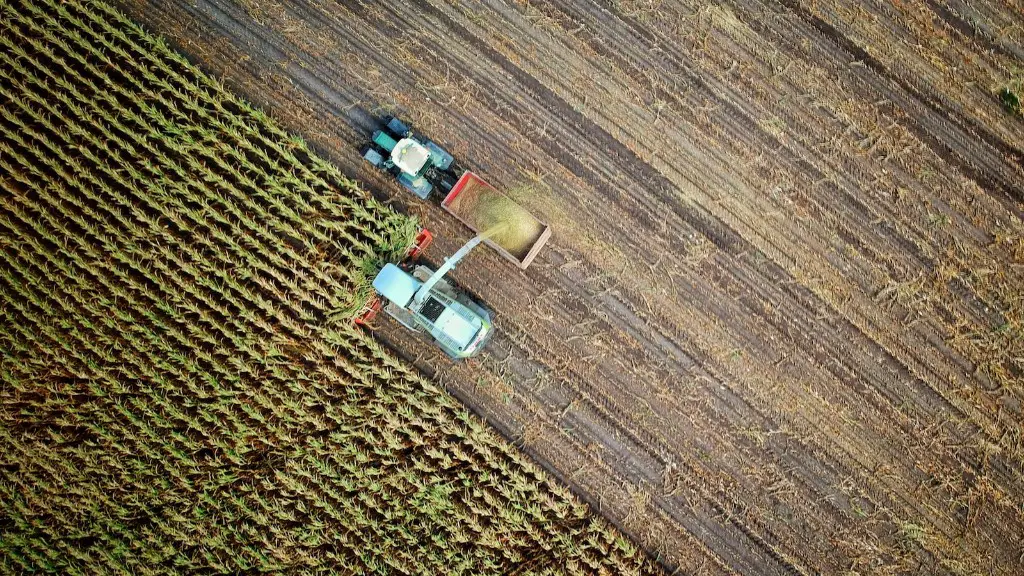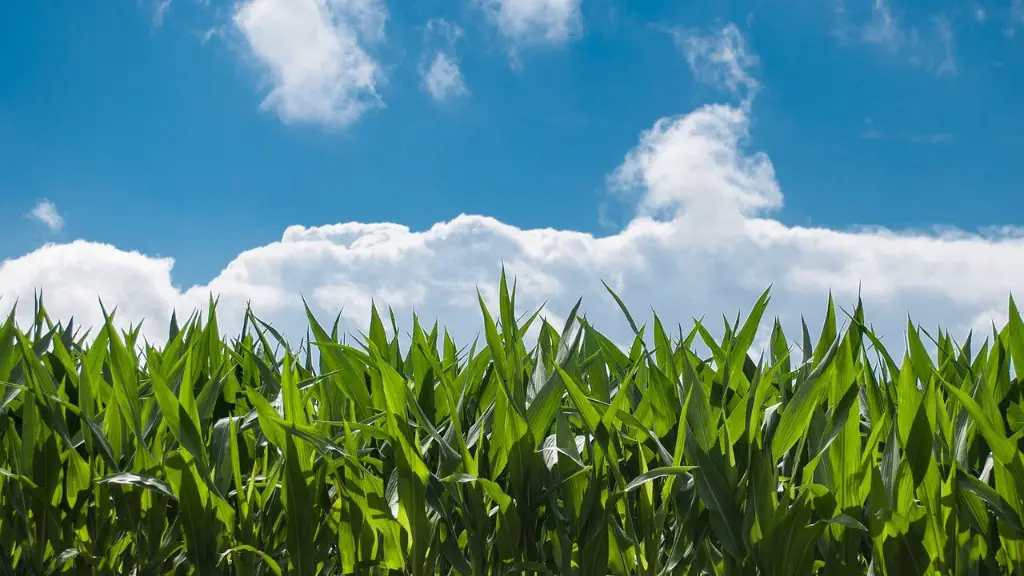The rise of agriculture had a profound social impact on early human societies. Agriculture allowed for the domestication of plants and animals, which led to the development of civilizations. Agriculture allowed for the growth of cities and the rise of trade and commerce. Agriculture also allowed for the growth of food surpluses, which allowed for the development of social stratification and the rise of civilizations.
The rise of agriculture had a profound social impact on early human societies. It led to the domestication of plants and animals, which in turn led to the development of civilizations. Agriculture allowed for the growth of cities and the rise of social classes. It also greatly impact the way humans view their relationship with the natural world.
What impact did agriculture have on society?
Agriculture plays a vital role in society and the economy. It provides food for people and animals, raw materials for industry, and jobs for people. Agriculture also supports wildlife and ecosystems.
The agricultural revolution was a pivotal moment in human history. It marked a shift from a hunter-gatherer lifestyle to a more settled, agrarian way of life. This change had a profound impact on human society, touching everything from economic inequality to disease.
The agricultural revolution is often linked to an increase in societal inequality. This is because early farmers were more dependent on the land for their livelihoods, and thus more vulnerable to the whims of nature. This led to a fear of scarcity, which in turn led to hoarding and stockpiling of resources. This unequal distribution of resources led to a widening of the gap between the haves and the have-nots.
The agricultural revolution is also thought to have had an impact on human health. The rise of settled, agrarian societies led to a decline in nutrition, as early farmers were not as mobile as their hunter-gatherer counterparts and thus had access to a narrower range of food sources. Additionally, the close quarters in which early farmers lived led to the spread of infectious diseases from domesticated animals to humans. These diseases, which were previously unknown to humans, took a toll on the health of early farming communities.
The societal effects of agricultural practices are far-reaching and complex. They include changing diets, the role of women in agricultural production, and the economic purpose of agriculture. Each of these factors can have a significant impact on society as a whole.
Changing diets are perhaps the most obvious effect of agricultural practices. The food that is produced by farmers has a direct impact on the diets of people all over the world. The type of food that is produced, and the way it is produced, can have a major impact on the health of people and the environment.
The role of women in agricultural production is also a significant factor. In many parts of the world, women are the primary caretakers of the land and the animals. They play a vital role in ensuring that food is grown and harvested properly. In addition, they often sell the food they produce in order to support their families.
The economic purpose of agriculture is also a major factor in its societal effects. The way that agricultural products are grown and sold can have a major impact on the economy of a region or country. For example, the sale of genetically modified crops can have a significant impact on the economic stability of a region.
The development of agriculture led to the rise of social classes in human societies for a number of reasons. Firstly, agriculture allowed farmers and traders to accumulate wealth, which led to the rise of a class of elites who enjoyed greater power and prestige than the rest of society. Secondly, the introduction of agriculture led to a division of labor between those who worked the land and those who did not, which further reinforced the social divide between rich and poor. Finally, the growth of agricultural surpluses allowed for the development of cities and civilizations, which in turn led to the rise of even more distinct social classes, such as the ruling class and the working class.
What are the benefits of agriculture to the society?
Agriculture can help reduce poverty, raise incomes and improve food security for 80% of the world’s poor, who live in rural areas and work mainly in farming. The World Bank Group is a leading financier of agriculture, with a focus on smallholder farmers. We provide loans, grants, technical assistance and knowledge products to help countries develop their agriculture sectors and increase productivity, incomes and food security.
The Norfolk four-course rotation was one of the most important innovations of the Agricultural Revolution. It greatly increased crop and livestock yields by improving soil fertility and reducing fallow. The rotation consisted of four crops: wheat, barley, oats, and legumes. The legumes would be planted in the fallow year to improve the soil fertility. This system was widely adopted in England and helped to increase agricultural production.
When early humans began farming, they were able to produce enough food that they no longer had to migrate to their food source. This meant they could build permanent structures, and develop villages, towns, and eventually even cities. Closely connected to the rise of settled societies was an increase in population.
The Agricultural Revolution was a period of significant agricultural development in Britain that saw a huge increase in output and productivity. It is estimated that total agricultural output grew 27-fold between 1700 and 1870, and output per worker at a similar rate. This made Britain the most productive agriculture in Europe, with 19th-century yields as much as 80% higher than the Continental average. The Agricultural Revolution was a key factor in Britain’s economic development and industrialization, and its effects can still be seen today.
The report states that growing crops, settling down and building cities often leads to an increase in inequality between the rich and the poor. It seems that the rich usually benefit more from these activities than the poor. This is likely because the rich have more resources and opportunities, which allows them to get ahead.
The agricultural revolution was a major change in human lifestyle that occurred when people created advanced tools, farming methods, and domesticated animals. There are several possible factors which contributed to the agricultural revolution. One factor was the need for food. People back then were certainly aware of the need for food, and they realized that it would be very hard to move around from place to place to find food. Another factor was the development of technology. People back then were able to develop tools and methods that made it easier to farm and to domesticated animals. Finally, the agricultural revolution had a significant impact on the economy. It allowed people to produce more food, which led to a increase in trade and a more prosperous economy.
What are 3 reasons why agriculture is important?
1) Agriculture is the main source of raw materials for industries.
2) It is the second largest sector in India after the services sector.
3) It is a significant contributor to the country’s GDP.
4) It provides employment to a large section of the population.
5) It is an important sector for the socio-economic development of the country.
6) It plays a crucial role in the country’s food security.
7) It is a major source of foreign exchange for the country.
8) It helps in the development of infrastructure and other basic facilities.
9) It contributes to the overall economic growth of the country.
10) It has a huge potential for further growth and development.
Agriculture plays a vital role in the economic growth and development of a country. It is the backbone of the economy and the main source of livelihood for the people. Agriculture not only provides food for the population but also supplies raw materials for industries. It is a major source of employment and income for the people.
Agricultural development is essential for the overall development of the country. It contributes to the GDP, provides food and raw materials, and creates employment opportunities. It plays a pivotal role in the economic development of a country.
What is its importance to agriculture the society and the economy
The agricultural sector is a key driver of economic growth and poverty reduction in developing countries. The sector has strong linkages with the rest of the economy, and this is one of the most powerful ways in which it aids economic growth and supports nation building. When agriculture grows, so does the economy in general, speeding up the reduction of rural and urban poverty.
The sector’s linkages with the rest of the economy are particularly important in developing countries, where the agricultural sector often accounts for a large share of GDP and employment. The sector’s linkages with other sectors can be divided into three categories: forward linkages, backward linkages, and final demand linkages.
Forward linkages refer to the linkages between the agricultural sector and the sectors that supply inputs into agriculture, such as the manufacturing sector. Backward linkages refer to the linkages between the agricultural sector and the sectors that use agricultural products as inputs, such as the food processing sector. Final demand linkages refer to the linkages between the agricultural sector and the sectors that demand agricultural products, such as the retail sector.
All three types of linkages are important for economic growth and poverty reduction. Forward linkages provide farmers with access to productive inputs and technologies, backward linkages
The Agricultural Revolution of the 18th century led to advances in food production that resulted in better diets, longer life spans, and an increase in population. As population increased, so did the pool for workers in industry. The Agricultural Revolution also had a significant impact on the environment, as more land was cleared for farming and the use of pesticides and other chemicals increased.
What was a positive effect of the Agricultural Revolution?
The Agricultural Revolution was a period of great change for farmers. They began to experiment with new crops and new methods of crop rotation. These new farming techniques gave soil time to replenish nutrients, leading to stronger crops and better agricultural output. Advancements in irrigation and drainage further increased productivity.
The development of agriculture is called a revolution because it has had radical changes on human society throughout history. They resulted in the invention of the first cities, allowed for industrialization, and caused the human population to grow massively.
Warp Up
The rise of agriculture allowed for the domestication of plants and animals, which led to the development of civilizations. Agriculture also allowed for the growth of cities and the rise of trade.
The rise of agriculture had a number of important social impacts. First, it allowed for the domestication of plants and animals, which led to the development of civilizations. Agriculture also allowed for the growth of cities and the rise of trade and commerce. Finally, it allowed for the development of new technologies and the spread of knowledge.





